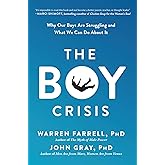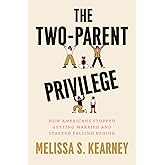
Enjoy fast, free delivery, exclusive deals, and award-winning movies & TV shows with Prime
Try Prime
and start saving today with fast, free delivery
Amazon Prime includes:
Fast, FREE Delivery is available to Prime members. To join, select "Try Amazon Prime and start saving today with Fast, FREE Delivery" below the Add to Cart button.
Amazon Prime members enjoy:- Cardmembers earn 5% Back at Amazon.com with a Prime Credit Card.
- Unlimited Free Two-Day Delivery
- Streaming of thousands of movies and TV shows with limited ads on Prime Video.
- A Kindle book to borrow for free each month - with no due dates
- Listen to over 2 million songs and hundreds of playlists
- Unlimited photo storage with anywhere access
Important: Your credit card will NOT be charged when you start your free trial or if you cancel during the trial period. If you're happy with Amazon Prime, do nothing. At the end of the free trial, your membership will automatically upgrade to a monthly membership.
Buy new:
-39% $11.49$11.49
Ships from: Amazon.com Sold by: Amazon.com
Save with Used - Good
$6.98$6.98
Ships from: Amazon Sold by: SRS Company

Download the free Kindle app and start reading Kindle books instantly on your smartphone, tablet, or computer - no Kindle device required.
Read instantly on your browser with Kindle for Web.
Using your mobile phone camera - scan the code below and download the Kindle app.

Follow the author
OK
Fatherless America: Confronting Our Most Urgent Social Problem Paperback – January 5, 1996
Purchase options and add-ons
"[A] well reasoned, empirically sound, and an important contribution to the public debate." — William J. Bennett, author of The Book of Virtues
A compelling and controversial exploration of absentee fathers and their impact on the nation
One of the most urgent and controversial books of the 90s, "'Fatherless in America' has instantly become a catch phrase" (Los Angeles Times). Blankenhorn defines the growing fatherlessness in America and how we can restore fathers to their rightful place in our families.
- Print length336 pages
- LanguageEnglish
- Publication dateJanuary 5, 1996
- Dimensions5.31 x 0.76 x 8 inches
- ISBN-10006092683X
- ISBN-13978-0060926830
Book recommendations, author interviews, editors' picks, and more. Read it now
Customers who viewed this item also viewed
Editorial Reviews
From the Back Cover
Excerpt. © Reprinted by permission. All rights reserved.
The Diminishment of American Fatherhood
A Michigan high school senior, Kara Hewes, enters a crowded conference room to face cameras and reporters. She is about to make a public appeal to her seventy-three-year-old father. She asks him to admit his paternity. "I'd just like him to be a father," she says. "I want very much to develop a relationship with him." Her biological father, identified through a reliable blood test, is Bruce Sundlun, World War II Air Force captain, Harvard Law School graduate, and second-term governor of Rhode Island.
Kara Hewes gets her wish. Shortly after the press conference in June 1993, Sundlun acknowledges his paternity and agrees to pay Kara's college tuition. She withdraws her paternity suit. Father and daughter dine together in the governor's mansion, and he invites her to visit him and his other children at his Newport estate.
The governor's supporters are confident that the publicity will not damage his political career. After all, this is a complicated case. The thrice-divorced governor was single at the time he fathered Kara. He had already paid $30,000 to Kara's mother to settle an earlier suit, and Kara had been adopted by her stepfather, who later vanished. Another important point in Sundlun's favor, say his supporters, is that the governor has always been forthcoming about his personal life. "His frankness and candidness with the people of this state deserve a great deal of respect," says Julius Michaelson, a friend and former Rhode Island state attorney general.
As for the governor, he is reluctant to dwell on the past: "I think the important thing is not to look back," he later tells reporters in a joint press conference with his daughter. "We're here to look forward and try to create a relationship. You can't wave a magic wand and have a storybook life."
Governor Sundlun's unstorybook story, though a bit more public than most, has become increasingly common. It is a story unfolding in countless courtrooms, lawyers' suites, and welfare offices across the nation. Like the governor, more and more men are fathering children outside of marriage. More and more men are failing to support or even acknowledge their children. More and more men are simply vanishing from their children's lives.
Kara Hewes's story is also familiar. A growing number of American children have no relationship with their fathers. Court and school officials report that many children do not even know what to put in the "Father's Name" blank on printed forms. An even larger proportion of children have only the slightest acquaintance with their fathers. In its 1991 survey of children in the United States, the National Commission on Children described the spreading phenomenon of father-child relationships that "are frequently tenuous and all too often nonexistent."
Fathers are vanishing legally as well as physically. About one-third of all childbirths in the nation now occur outside of marriage. In most of these cases, the place for the father's name on the birth certificate is simply left blank. In at least two of every three cases of unwed parenthood, the father is never legally identified.6 Not surprisingly, paternity suits are on the rise.
When Governor Sundlun says that we "can't wave a magic wand and have a storybook life," he implies that the storybooks may be unrealistic. The governor need not worry: Even storybooks for children now reflect his kind of fatherhood. "There are different kinds of daddies," one book for preschoolers states, and "sometimes a Daddy goes away like yours did. He may not see his children at all." Another children's book is equally candid: "Some kids know both their mom and dad, and some kids don't." One child in this book says: "I never met my dad, but I know that he lives in a big city." Another says: "I'll bet my dad is really big and strong."
So Kara Hewes and Governor Sundlun are, after all, something of a storybook story. It is one we all know. It is becoming our society's story. We see it everywhere around us. We tell it to our children. It is the story of an increasingly fatherless society. The moral of this new narrative is that fathers, at bottom, are unnecessary. The action of the story centers on what can be best understood as the fragmentation of fatherhood.
Imagine something big, made out of glass, called fatherhood. First imagine it slowly shrinking. Then imagine it suddenly shattering into pieces. Now look around. Try to identify the shards. Over here is marriage. Over there is procreation. Over here, manhood. Over there, parenthood. Here, rights. There, responsibilities. In this direction, what's best for me. In that direction, what's best for my child.
Off to one side, looking nervous, is an emaciated fellow we must now call a biological father, filling out forms and agreeing to mail in child-support payments. Off to the other side is some guy the experts now call a social father, wondering what to do next and whether he wants to do it. In the middle, poking through the rubble and deciding when to leave, are mothers and children. There is much anger and much talk of "rights." People are phoning their lawyers. People are making excuses. People are exclaiming at how complicated things have become.
Indeed, as fatherhood fragments, things do become complicated. Culturally, the story of fatherhood becomes harder to figure out. For, as we witness the collapse of fatherhood as a social role for men, we become confused and divided about the very nature and meaning of fatherhood.
Product details
- Publisher : Harper Perennial (January 5, 1996)
- Language : English
- Paperback : 336 pages
- ISBN-10 : 006092683X
- ISBN-13 : 978-0060926830
- Item Weight : 10.4 ounces
- Dimensions : 5.31 x 0.76 x 8 inches
- Best Sellers Rank: #289,495 in Books (See Top 100 in Books)
- #210 in Sociology of Marriage & Family (Books)
- #321 in Parenting Boys
- #486 in General Gender Studies
- Customer Reviews:
About the author

Discover more of the author’s books, see similar authors, read book recommendations and more.
Customer reviews
Customer Reviews, including Product Star Ratings help customers to learn more about the product and decide whether it is the right product for them.
To calculate the overall star rating and percentage breakdown by star, we don’t use a simple average. Instead, our system considers things like how recent a review is and if the reviewer bought the item on Amazon. It also analyzed reviews to verify trustworthiness.
Learn more how customers reviews work on AmazonTop reviews from the United States
There was a problem filtering reviews. Please reload the page.
- Reviewed in the United States on July 14, 2015I see no solution to the fatherless problem in the US or elsewhere in the world. When you had to have a dam good reason to get a divorce the family unit, although never perfect, was a model for children to grow up in. Now that the US lawyers have railroaded easy divorce for no reasons whatever so they could get rid of their wives and marry someone 20 years younger, the effect on children is terrible. Now we have more self identifying homosexual and bi-sexual and transgender kids, more promiscuilty, more drug use, more "cutters". I only knew of two older guys who were into drugs in the early 1960"s and both of them had a bad end, and I never knew anyone who was homosexual. I do not know of any way to bring about a solution to the problem of fatherless homes in the USA. The entire US culture has been in a state of decline beginning with the assassination of President Kennedy, followed by the Vietnam War which Kennedy would never have started had he lived. Then the birth control pill which facilitated sexual promiscuity and allowing married people to have affairs. This was followed by easy divorce to further destroy the American family. Then the removal of glass food containers and tin lined cans being replaced by plastics which have caused a whole generation of boy babies to be adversely affected orientation wise. The USA for all practical purposes is no longer a world power. It is in an unstoppable state of decay. It is a country bent on destroying itself. Any student of the Holy Bible who has any knowledge of the scriptures will tell you that there is no mention of a kingdom such as the USA written about in the old testament or new testament. This points to the strong possibility that the USA is no longer a country and is probably destroyed by its enemies of which there are plenty. If the US is not destroyed by a first strike by Russia then it may be destroyed by an accidental war. The US could not even handle the damage from a single hurricane. How can it hope to handle the destruction of 50 of its largest cities? Those who are survivors will act exactly like the government officials in New Orleans did after the hurricane. The cops were looting and driving around in luxury automobiles because there was no one to stop them. The cops and firemen who worked on the world trade center cleanup were also helping themselves to luxury goods. When a disaster strikes the worst that is in man begins to show itself.
- Reviewed in the United States on September 26, 2024Every American should have a copy of this book
- Reviewed in the United States on January 16, 2017This book was released the year before my divorce. I had been unable to forgive my cuckoldry and my wife was divorcing me and I would soon be waving goodbye to her and our 2-year-old son and our home. I was guaranteed to see him 48 days per year.
So... looking over the titles of the fabulously successful co-parenting schemes I found this book. The chapter titles were the very fears of what I could become.
My son will celebrate his 22nd birthday soon. I last saw him, talked to him, in 1998.
I keep this book by my bedside. Every 6 months or so I will pick it up and re-read a chapter. The one thing that Blankenhorn doesn't discuss is madness. Not insanity, just a mute madness as you lose your child. Lose your child to his mother, to his stepfather, to his new siblings, to his much more frequent family. The madness of being unnecessary and unneeded. The madness that comes with the realisation that your child sees you as a burden that must be endured until the age of 18.
The madness that endures.
- Reviewed in the United States on October 2, 2013This is a copy/paste from my Goodreads.com review
Full of truth and creepy in its observations of 1995 America that hits home with even stronger resonance today, Blankenhorn asks, "Where are all the fathers?" and proceeds to answer that question by first showing us the history of the American family before listing examples and definitions of seven "father-types" that emerged as a result of the women's rights movements. Viewing this list, it's pretty obvious why so many American women are flocking to the "Twilight" movies. America is not just yearning for more fathers, we are getting DESPERATE! The old "Life Script" just isn't being followed anymore as the following list shows:
1. The Unnecessary Father-The "new idea" that American men are no longer a requirement in American families and for single mothers having a father for the kids is "important...but not that important".
2. The Old Father-aka "Father Knows Best" our own Grandfathers come to mind when we think of this man. The old school male: strong, silent, domineering 1950's patriarchy that America is now yearning for.
3. The New Father-I can't help but think of gay men because this is the father who takes on the traditional feminine roles of changing diapers and doing the laundry while his wife brings home the bacon. Blankenhorn admits this father is good but even in 1995 the idea just wasn't taking off. By 2012 no one's even talking about this guy anymore.
4. The Deadbeat Dad-Wham bam, thank you Ma'am. He came, he impregnated, she couldn't stand him, so he left. Single mom's only regret is that she had a relationship with him. My only gripe with this book is the word "pornography" is never used, not once.
5. The Visiting Father-Here's my stepdad. He tries to maintain a relationship with his kids. He works hard. He pays his child support faithfully, but something went horribly wrong in our divorce culture of the 80's and 90's. By 2012, America is still paying the price.
6. The Sperm Father-Sperm banks were still a new idea in the 90's but by the 21st century no one thinks twice about a woman who choses to raise a child alone. No one questions the child's paternity. Sperm father is now the cousin of The Deadbeat Dad.
7. The Stepfather and The Nearby Guy-Blankenhorn should've also added "boyfriend" as that's the life script so many American women are choosing today but it doesn't matter, both men fail to fill the shoes of father figure-blood will always be thicker than water. This chapter hit particularly close to home for me as my own stepfather has always been a stranger to me, we've never been close, I've tried, but the poor man just can't be a father to children that are not his own. Congratulations to all the second marriages out there that have managed to make it work but its hard. As for The Nearby Guy, as long as the single mother has someone, anyone, to fill the shoes of father figure, it's a hopeless situation and in the 21st century of rampant child pornography and domestic abuse it's pretty obvious that more men, not boyfriends, are needed who are committed to getting married and STAYING married to the women who are lowering their standards.
Nobody wins. That's the main message of this book. Poignant almost to a fault but these are issues that need to be brought to light. Bottom line-America needs more fathers for its women and children, not boyfriends or nearby guys. America needs a return to the "Good Family Man". Mitt Romney comes to mind.
This is an important groundbreaking book. Read it and pass it on.
- Reviewed in the United States on January 14, 2016This a fantastic eye opening examination of the reasons our children (especially boys) have been shortchanged . This book is an early printing. So you can just about double the statistical data.
- Reviewed in the United States on October 11, 2014There is a great basis for discussion and a great leaping off point for reflecting on the understanding of the role of Fathers in our society.
- Reviewed in the United States on October 18, 2014Loved the book. Haven't finished reading it but intriguing from the preface forward. Book in great shape
- Reviewed in the United States on November 19, 2016Great insights in this book. The seller was great, too
Top reviews from other countries
 PlaceholderReviewed in India on November 9, 2016
PlaceholderReviewed in India on November 9, 20165.0 out of 5 stars Five Stars
I like this book
-
 cmp mishraReviewed in India on August 24, 2023
cmp mishraReviewed in India on August 24, 20231.0 out of 5 stars अभी तक नहीं मिला
Seller बकवास है














